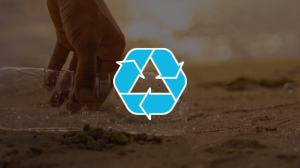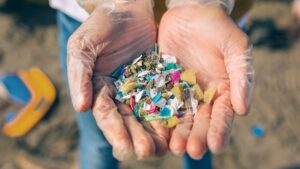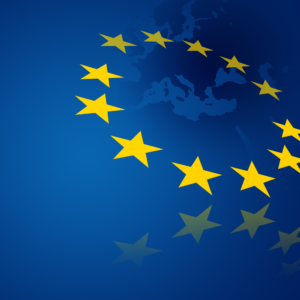Plastic Free Pacific at COP28
With 98% of primary plastics being derived from fossil fuels, leaders from Pacific regions supported discussions at COP28 to phase out fossil fuels and decarbonize the plastic industry as a method of tackling plastic pollution and increasing climate resilience.
This discussion at the Plastic Free Pacific side event at COP28 took place on December 4th, 2023 and included leadership from Oceania, Indonesia, Bangkok, the Solomon Islands, New Zealand, and Australia.
Story Preview
10 December 2023, UAE – For a truly resilient Pacific, all threats must be addressed. This was the message conveyed during a special event on a Plastic Free Pacific held at the Moana Blue Pacific Pavilion during the 28th Conference of the Parties of the UN Climate Change Convention.
Pacific communities are at the forefront of the triple planetary crisis of climate change, biodiversity, and pollution. Plastic waste has become a key driver of pollution across the world, overwhelming marine, terrestrial and aerial ecosystems. By 2050 there will be more plastic than fish in the ocean. The total plastic mass represents twice all living mammals, with 80% of all plastics ever produced still in the environment.
Plastic pollution is harming Pacific communities, ecosystems, and food security. It is more than just an eyesore: marine plastics contribute to climate change by emitting greenhouse gases and harming ocean life.
In March 2022, the UN Environment Assembly agreed to a resolution to develop an international legally binding instrument on plastic pollution, covering the whole life cycle of plastics. This is a major step towards addressing the global plastic pollution crisis, and it is very much in line with regional efforts in the Pacific.
The third Intergovernmental Negotiating Committee to form the new legally binding instrument was held in Nairobi before the start of COP28.
“We must strive for a paradigm-shift to effectively end plastic pollution, including in the marine environment and to achieve pollution, including in the marine environment and to achieve such an ambition, we need adequate provisions of means of implementation,” stated Hon Steven Victor, Palau Minister of Agriculture, Fisheries, and the Environment
“In particular for small islands developing states as well as the flexibility for Small Islands Developing States to be considered because of our special circumstances and limited capabilities.”
Highlighting the plastic pollution issue at COP28 featured the linkages between fossil fuel and plastic noting plastic production is a high carbon emissions intensity activity.
“The highest share of emissions for the plastics sector comes from the production of primary plastic polymers. Critically, 98% of primary plastics are derived from fossil fuels – from oil and gas, and sometimes coal. So the effort that we are pursuing here in the climate COP to phase out fossil fuels is directly relevant to reducing primary plastic production,” presented the Ambassador of Fiji to the Republic of Indonesia; Permanent Representative to UNESCAP in Bangkok – H.E. Amenatave Yauvoli.
“Reducing primary plastic production and decarbonising plastics production is directly relevant to efforts to phase out fossil fuels and can make a vital contribution to the climate agenda. o It results in a product that does not degrade, a product that remains present in our oceans, on our beaches, and in our soil.”
Pacific leadership in addressing the plastic pollution crises was highlighted at COP28.
…
Nineteen of the twenty-one Pacific countries and territories (90%) have policies banning single-use plastics and polystyrene, and more countries are declaring commitments to do so. The total pledge will soon reach 100% of all Pacific Islands.
The Pacific Islands region has also made an impact in addressing plastic pollution through the Pacific Ocean Litter Project funded by the Government of Australia and implemented by the Secretariat of the Pacific Regional Environment Programme (SPREP).
The Pacific islands are setting an example for the rest of the world in the fight against plastic pollution. They are showing that it is possible to take action, even in the face of significant challenges.
Moana Blue Pacific Pavilion, COP28, December 10, 2023.



